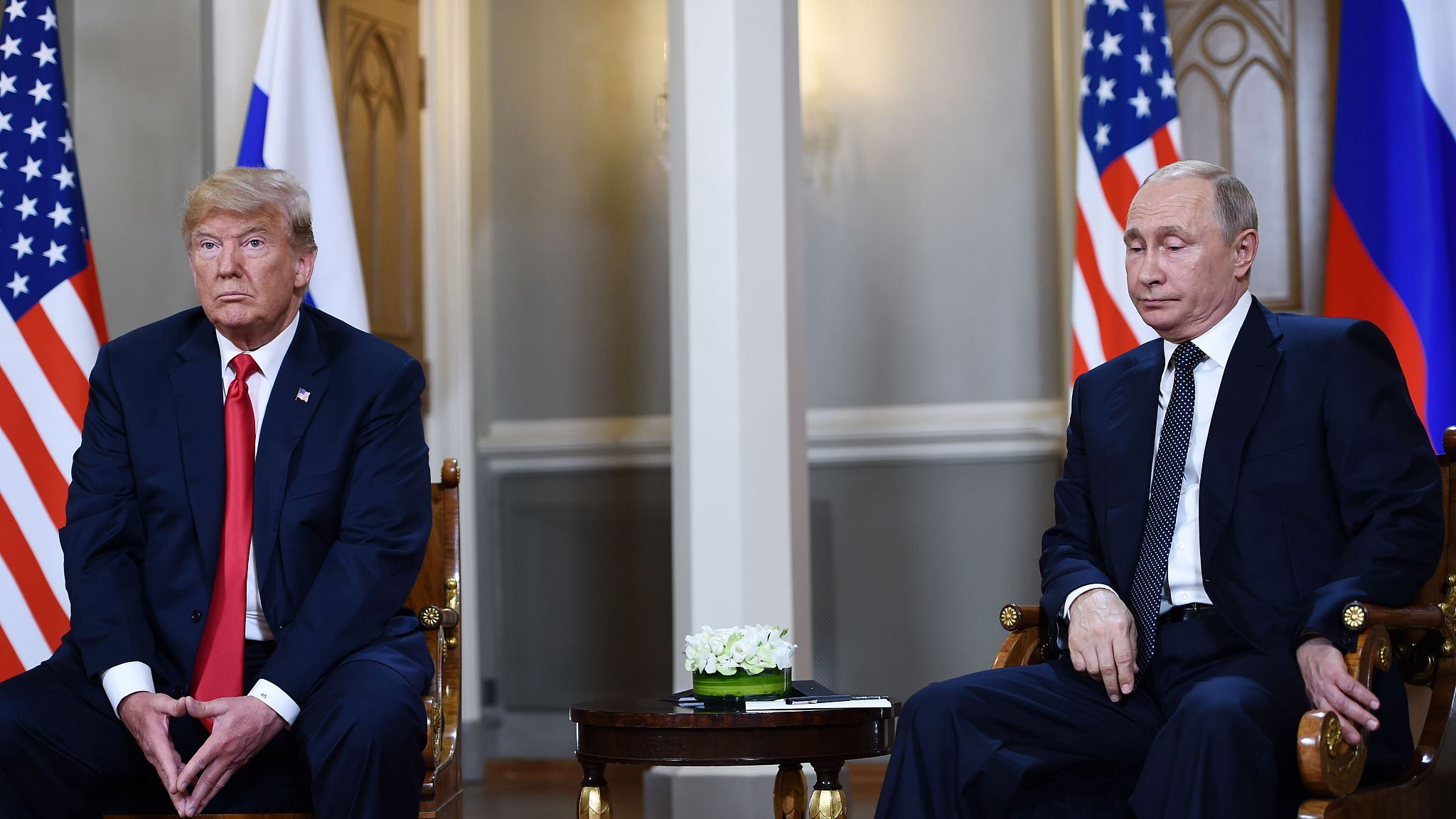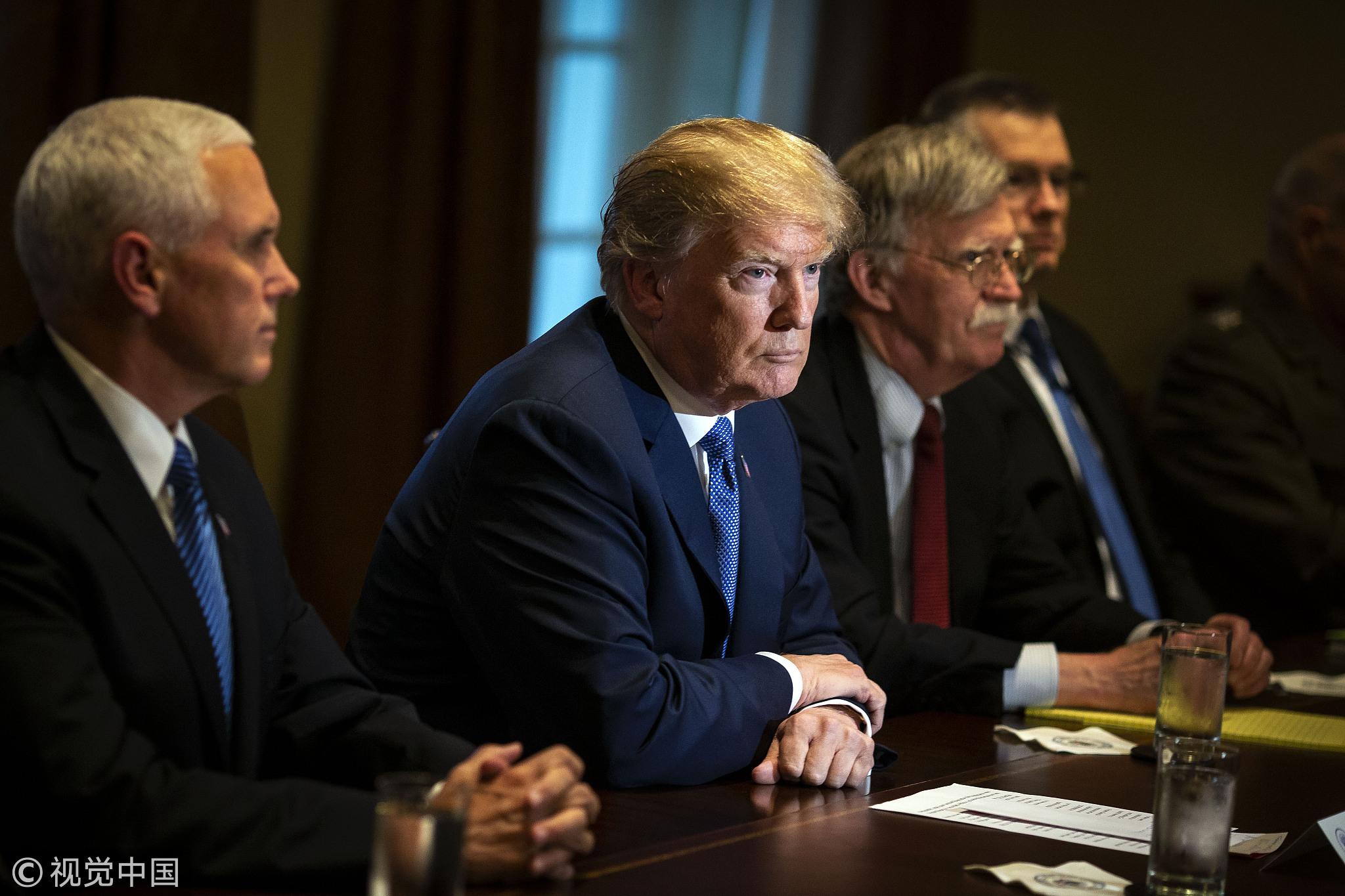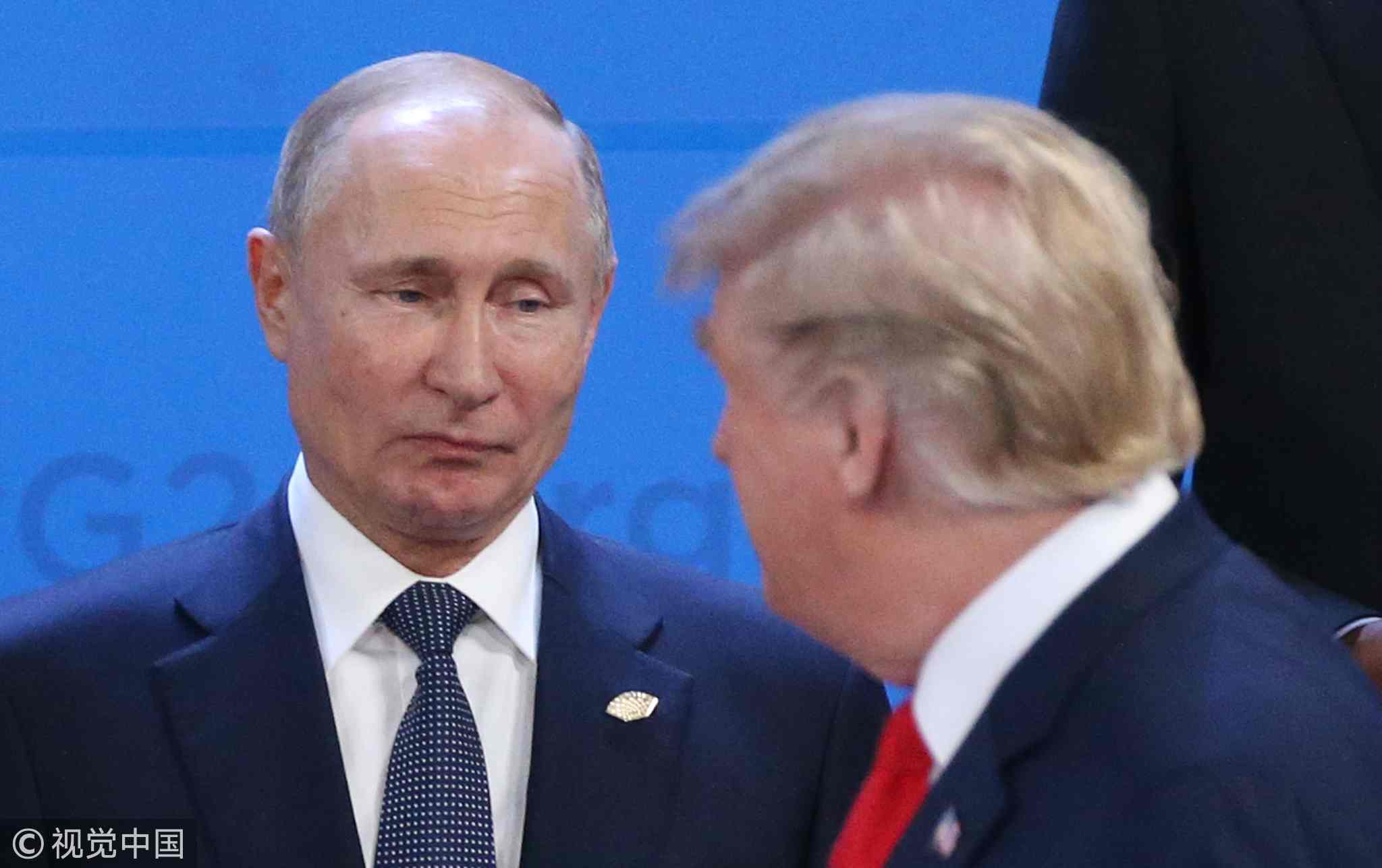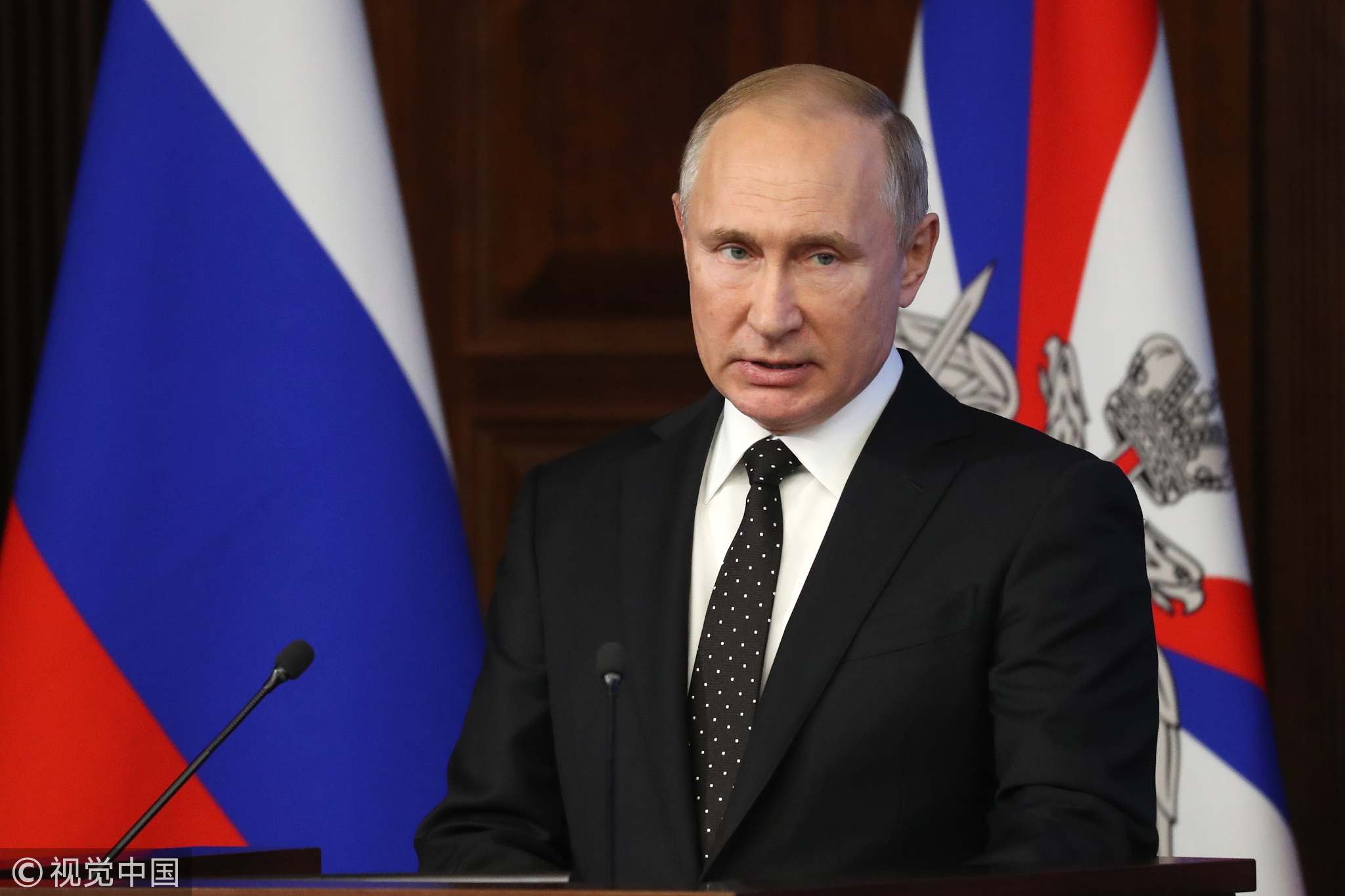
Opinions
18:11, 23-Dec-2018
Opinion: Decline in Russia-U.S. relations in 2018 shows difference in status requirements
Updated
18:06, 26-Dec-2018
Li Xing

Editor's note: With 2018 drawing to a close, it is time to review the many ups and downs that occurred in the international community. Among others, the Russia-U.S. relations have been thrown into the spotlight, with doubts about whether the bilateral relations reaching the point of no return. In this article for CGTN, Li Xing, professor and director of the Eurasian Studies Center at Beijing Normal University, shares his insights.
In December 2017, Donald Trump produced the National Security Strategy, followed by the U.S. National Defense Strategy and the Nuclear Posture Review, which clearly label Russia as a “strategic rival.” On top of these reports, Russia-U.S. relations in 2018 started at a low point and ended lower, filled with struggle and near-miss incidents and causing much confusion. The interactions of the two countries mainly focused on things including geopolitics, heatedly debated issues, international order and head-of-state diplomacy.
The geopolitical rivalry between Russia and the U.S. is mainly reflected in the competition between the two countries in Syria and Ukraine. In 2018, the rivalry between the two countries in the Middle East became more intense. In Syria, Russian, Syrian and Iranian coalition forces have gained grounds in combating terrorism and the rebel forces. The Russia-backed Syrian President Bashar al-Assad regime has regained its footing, and the Astana process led by Russia, Turkey and Iran has gained considerable international influence.
Unwilling to give Russia the lead in the Syrian crisis, the U.S.-led international anti-terrorism coalition continues to support the rebels, demands Bashar al-Assad to step down, and has attacked Syrian government forces with air strikes under the pretext of chemical weapons, which Russia opposes.
On the Ukraine issue, the U.S. has made great efforts to supply Ukraine with weapons and military training, and has also hinted NATO to accept Ukraine's accession and deployment of certain military forces in the Black Sea. In November 2018, Russia and Ukraine forces clashed in the Sea of Azov, east of Crimea. Russia detained three Ukrainian ships and crew members. Russia and Ukraine accused each other of “violating” sovereignty. In this case, the U.S. continues to support Ukraine.

U.S. President Donald Trump, center, listens during a meeting with senior military leadership in the Cabinet Room of the White House in Washington, D.C., U.S., on April 9, 2018. /VCG Photo
U.S. President Donald Trump, center, listens during a meeting with senior military leadership in the Cabinet Room of the White House in Washington, D.C., U.S., on April 9, 2018. /VCG Photo
The U.S. has ramped up its “Indo-Pacific Strategy” to woo Russia's traditional allies such as India and Vietnam, which has alerted Russia. The U.S. also tried to unite Russia to keep China at bay, but it was only wishful thinking and the plan failed.
The rivalry over heatedly debated issues has played out on three fronts: energy, arms and espionage. The U.S. opposed the “Nord Stream” project between Russia and Germany and the joint efforts to bolster oil prices by Russia and Saudi Arabia. When it comes to arms, the U.S. objected to Turkey and India buying Russia's S-400 air defense system. In the Baltic, Black, and Arctic seas, and other Russia's surrounding areas, the U.S. has conducted multiple military exercises to put pressure on and deter Russia.
On the fermenting issue of the poisoning of a former Russian double agent in March 2018, the U.S. supported the UK attack on Russia. At the same time, it put sanctions on Russian entities and individuals, accused Russia of violating human rights and international law, and expelled several Russian diplomats. Russia adopted in a tit-for-tat policy by expelling a corresponding number of U.S. diplomats and carrying out counter-sanctions.
In terms of international order, the U.S. has been withdrawing from a number of international organizations. In May, it announced the withdrawal from Iran's nuclear deal. In June, it withdrew from the UN Human Rights Council. In October, the U.S. threatened to withdraw from the Intermediate-Range Nuclear Forces (INF) Treaty.
Russia criticized the U.S. for withdrawing from Iran's nuclear deal while expressing support for Iran, and said it would continue to stay in the nuclear deal and cooperate with Iran in the energy field. Russia applied to join the UN Human Rights Council and criticized the U.S. for withdrawing from the INF Treaty and undermining global strategic stability.

Russian President Vladimir Putin (L) looks at U.S. President Donald Trump during the welcoming ceremony prior to the G20 Summit's Plenary Meeting on November 30, 2018 in Buenos Aires, Argentina. /VCG Photo
Russian President Vladimir Putin (L) looks at U.S. President Donald Trump during the welcoming ceremony prior to the G20 Summit's Plenary Meeting on November 30, 2018 in Buenos Aires, Argentina. /VCG Photo
In terms of bilateral relations, in January 2018, the U.S. published a “Kremlin list” of 200 people, including Russia's Prime Minister Dmitry Medvedev, who were called out as potential future sanctions targets. Then in March, the U.S. government announced the imposition of sanctions on a number of Russian individuals and entities, including Moscow's intelligence services, the first use of law to punish Russia for Russia's alleged election-year interference.
Russia-U.S. mixed bilateral relations culminated in head-of-state diplomacy. In 2018, Trump met Vladimir Putin several times, among which the Helsinki meeting in July was formal and played a certain role in stabilizing the worsening relations between the two countries. In November, the two heads of state met again at a ceremony held in France to mark the centenary of the end of the World War I, but due to the request and arrangement of the host country, the two presidents were unable to hold formal talks.
The two sides intended to meet again formally during the G20 summit in Argentina in November. However, due to the conflict between Russia and Ukraine in the Sea of Azov, Trump announced at the last minute that he cancelled the formal meeting with Putin on the grounds that Russia did not release the ships. The two heads of state just stood and had a brief conversation during the summit and held their respective positions on the Azov conflict.
Relations between Russia and the U.S. continue to decline, causing great concern to the world. The underlying cause is the structural contradiction between the unipolar dominance wanted by the U.S. and Russia's pursuit of an equal status as a major power, which is very difficult to reconcile.
Unlike the period right after the end of the Cold War, Russia is rising today, while the U.S. international dominance and influence are waning. However, Russia and the U.S. are not in the same league: the U.S. is stronger and Russia weaker. The U.S. has an upper hand and Russia is eager to improve the bilateral relations.

Russia's President Vladimir Putin addresses an extended meeting of the Russian Defence Ministry Board in the National Defence Management Centre in Moscow on December 18, 2018. /VCG Photo
Russia's President Vladimir Putin addresses an extended meeting of the Russian Defence Ministry Board in the National Defence Management Centre in Moscow on December 18, 2018. /VCG Photo
However, since Russia-U.S. economic ties are not very strong, Russia will not be afraid of economic sanctions and will not proactively seek to improve relations. The decline in Russia-U.S. relations has posed a serious impact on international security and global strategic stability.
In the bilateral contacts, Trump said some good things about Putin and wanted to improve relations with Russia because he appreciated Putin's tough, strong, frank and lively personal style. Trump once had the idea of uniting Russia to keep China at bay. And improving relations with Russia can best show his diplomatic achievements and his differences from Barack Obama.
However, Trump's favoritism towards Russia has been restrained by the Russia's alleged election interference and the political establishment at home. On the one hand, the establishment is anti-Russia and hates Russia; on the other hand, they also dislike Trump. So instead of improving relations with Russia, Trump has increased economic sanctions and military pressure on Russia.
Looking ahead to Russia-U.S. relations in 2019, there will not be any fundamental development, due to no big changes to the structural contradiction between Russia and the U.S. or the political dynamism in the latter. But it will not run out of control because after all, the top leaders of the two nuclear powers want to improve relations. It is thought that Trump will probably do something to change Russia-U.S. relations in his second term. In his first term, although he was strong in character, he was actually weak politically and had very limited space for maneuvering in foreign policy. If he has a second term, things may be different.
(If you want to contribute and have specific expertise, contact us at opinions@cgtn.com)

SITEMAP
Copyright © 2018 CGTN. Beijing ICP prepared NO.16065310-3
Copyright © 2018 CGTN. Beijing ICP prepared NO.16065310-3